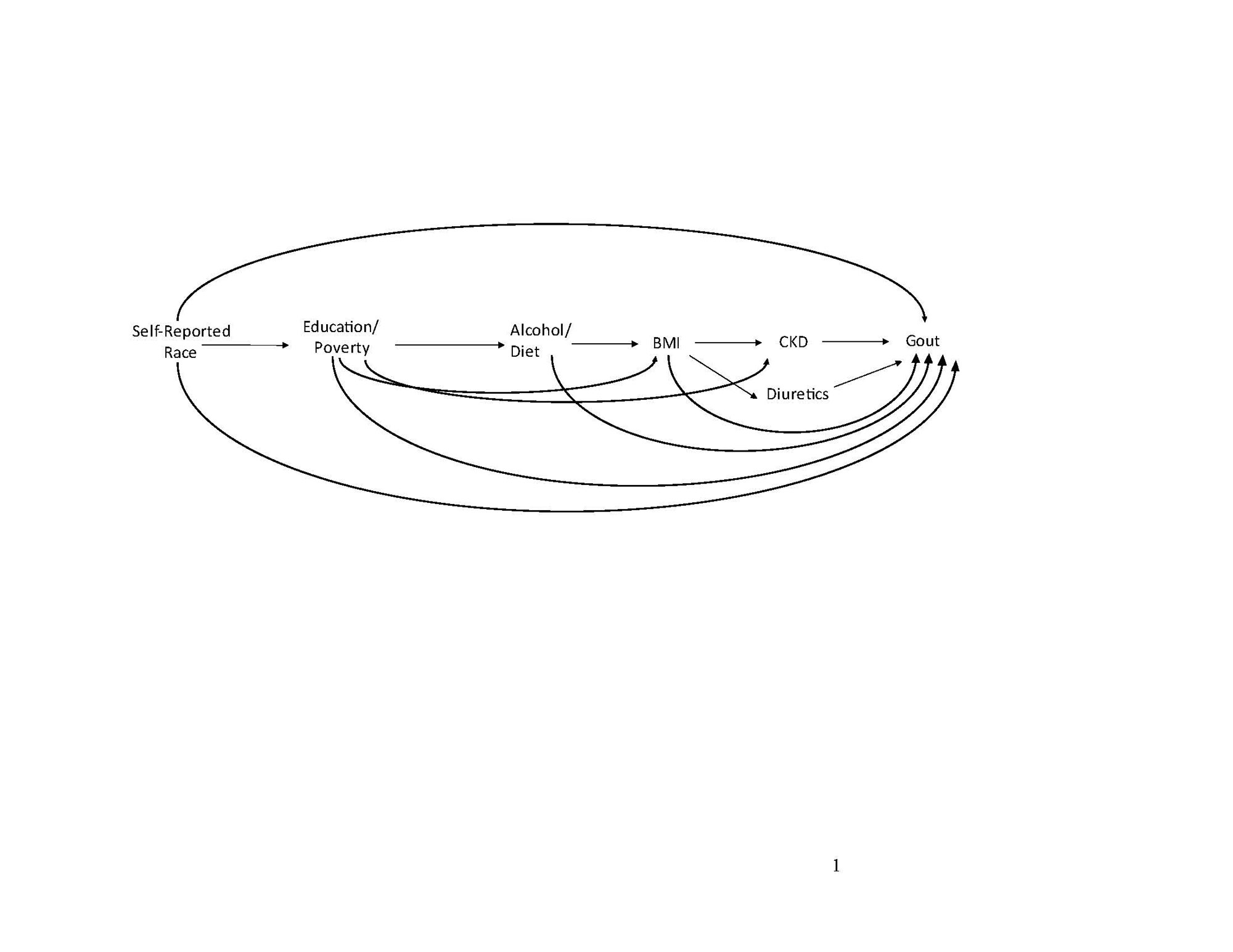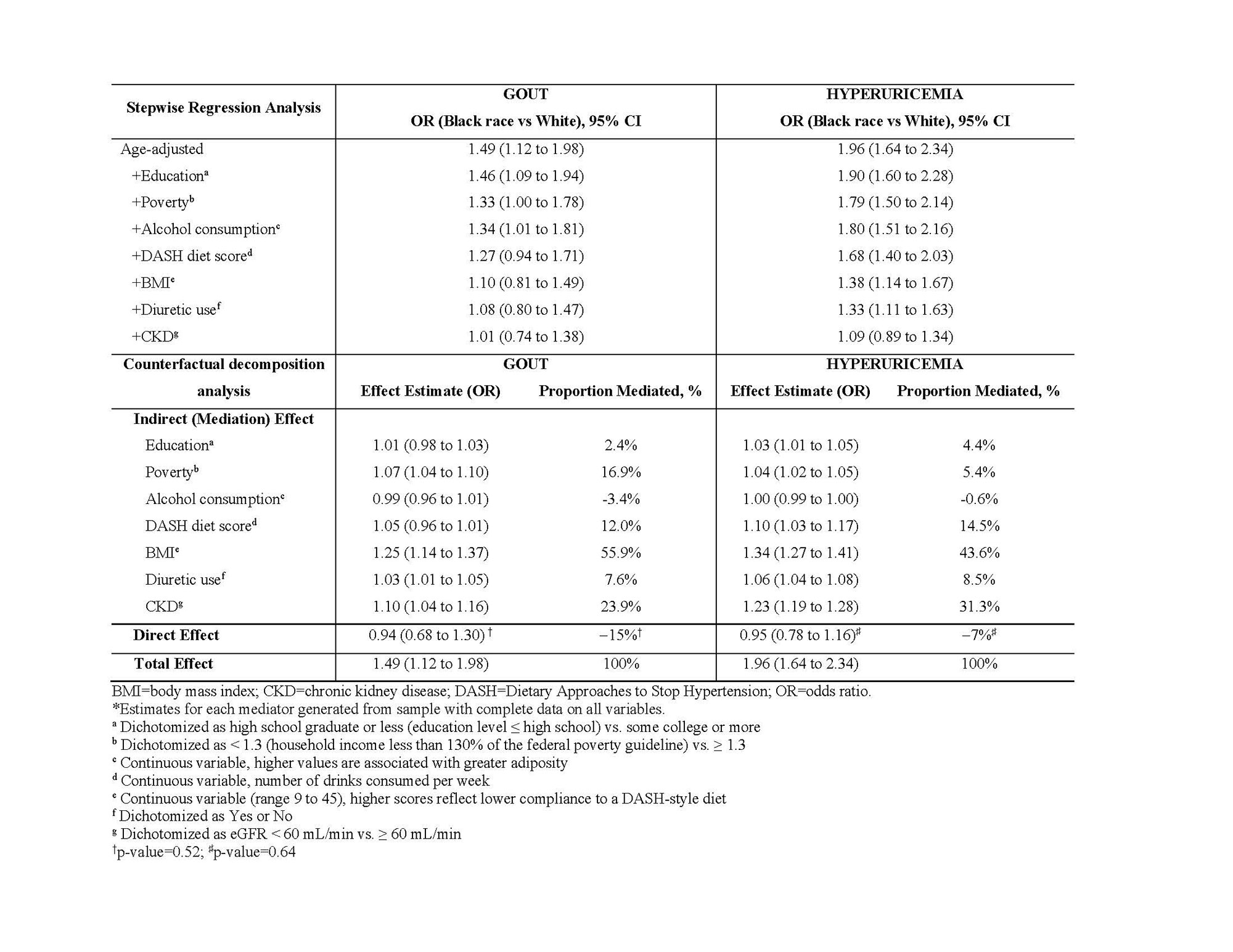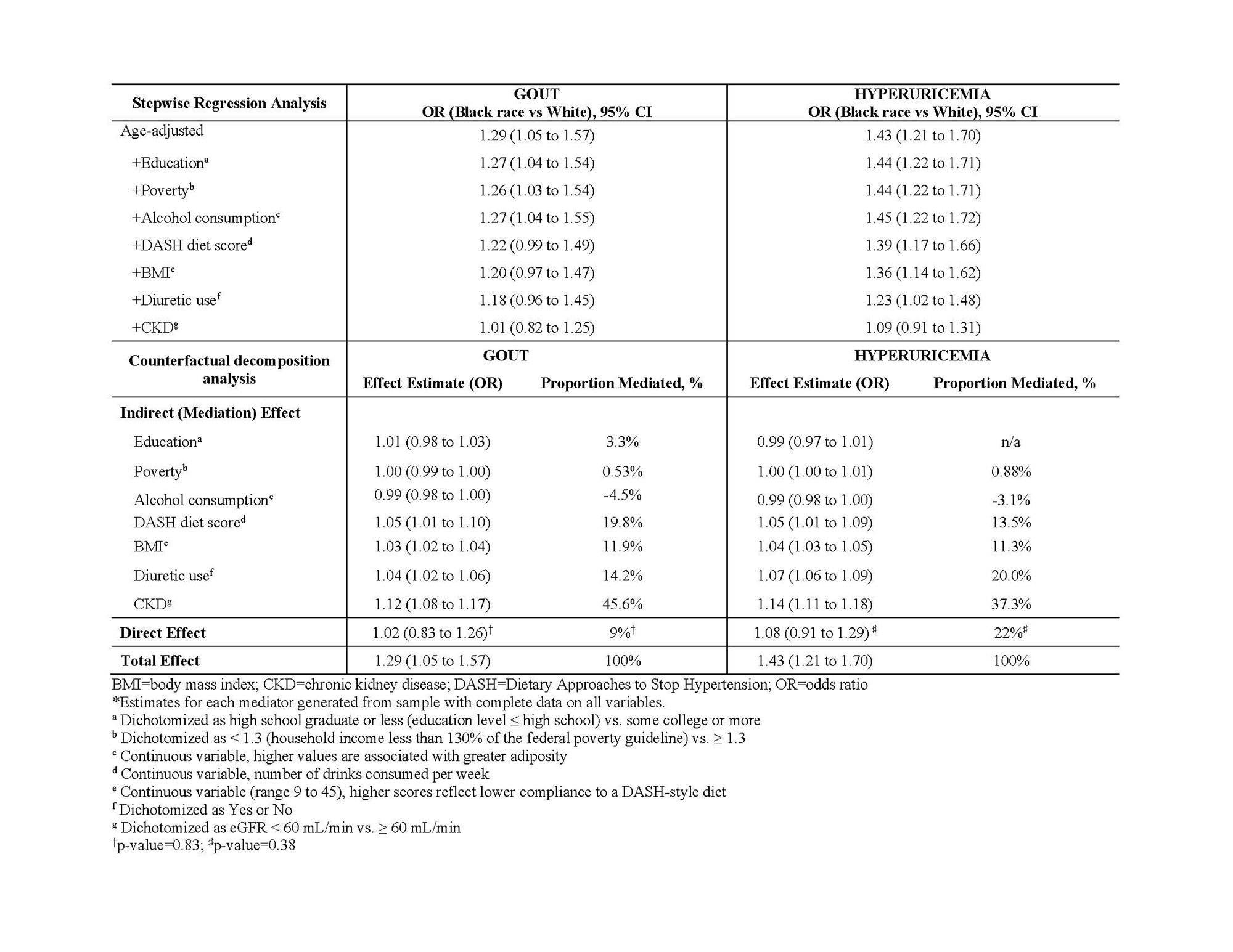Session Information
Session Type: Poster Session A
Session Time: 1:00PM-3:00PM
Background/Purpose: Emerging US cohort data suggest gout and hyperuricemia impart larger burdens on adults self-reporting Black race, especially Black women, than those self-reporting White race.[1,2] These racial disparities may be largely attributable to differences in non-genetic, mainly modifiable gout risk factors e.g., body mass index (BMI), diet,[3,4] and chronic kidney disease (CKD). However, national-level, sex-specific general population data on racial differences in the burden of gout, and potential mediators, are lacking. We determined and quantified sex-specific mediators of racial disparities in gout prevalence among a nationally representative sample of US adults.
Methods: Using recent decadal data (2007-2016) on physician-diagnosed gout and hyperuricemia from the National Health and Nutrition Examination Survey, we compared contemporary sex- and race-specific prevalences and conducted sequential causal mediation analysis (adjusting for upstream mediators following causal pathways) [5] to determine the proportion of the racial differences attributable to 7 potentially mediating social and clinical factors (see DAG in Figure 1): low education, poverty, BMI, alcohol, poor quality diet (poor DASH adherence), diuretic use, and CKD (eGFR < 60 mL/min, using latest equations that do not include a coefficient for Black race,[6] per National Kidney Foundation and American Society of Nephrology recommendations.)
Results: Age standardised prevalence of gout was 3.5% and 2.0% in Black and White women, respectively (age-adjusted OR =1.8 [95% CI: 1.3 to 2.5]), and 7.0% and 5.4% in Black and White men (age-adjusted OR =1.3 [1.0 to 1.6]).
6 of the 7 risk factors were more frequent/elevated in Black adults than White; alcohol was the exception, with lower consumption in Black people (both sexes). BMI levels and poverty were higher in Black women, but similar between Black and White men.
After adjusting for the 6 risk factors, racial differences in gout prevalence nullified (Tables 1 & 2, top). Largest mediating factor of excess gout cases among Black women was excess BMI, accounting for 56% of the racial difference (independent of education, poverty, diet, and alcohol), followed by CKD (24%), poverty (17%), and poor-quality diet (12%) (Table 1).
Among men, CKD was the largest mediator (46%), followed by diet quality (20%) and diuretic use (14%). BMI (12%) and poverty (0.5%) mediated smaller proportions of the racial difference among men than women (Table 2). Mediators of racial differences in hyperuricemia closely agreed with gout results.
Conclusion: Gout is more frequent among Black adults in the US than their White counterparts, especially women (two-times greater in Black women vs. White). These racial differences can be entirely explained by differences in 6, mainly modifiable clinical and social/environmental factors, including CKD, diuretics, and diet quality. However, their relative importance differed by sex, with BMI and poverty far more prominent in women. Culturally-informed efforts focussing on these factors could reduce current gout disparities.
1. Maynard PMID 24335384
2. Thompson PMID 35105711
3. Rai BMJ PMID 28487277
4. Yokose JAMA IM (2022)
5. Valeri & VanderWeele; PMID 23379553
6. NEJM PMID 34554658
To cite this abstract in AMA style:
McCormick N, Lu L, Yokose C, johi a, Merriman T, saag k, Zhang Y, Choi H. What Drives Racial Disparities in Gout in the USA? – Population-Based, Sex-Specific, Casual Mediation Analysis [abstract]. Arthritis Rheumatol. 2022; 74 (suppl 9). https://acrabstracts.org/abstract/what-drives-racial-disparities-in-gout-in-the-usa-population-based-sex-specific-casual-mediation-analysis/. Accessed .« Back to ACR Convergence 2022
ACR Meeting Abstracts - https://acrabstracts.org/abstract/what-drives-racial-disparities-in-gout-in-the-usa-population-based-sex-specific-casual-mediation-analysis/



